This post has not been edited by the GamesBeat staff. Opinions by GamesBeat community writers do not necessarily reflect those of the staff.
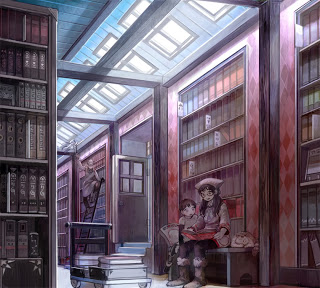
This week, Paul Wheatley, a specialist in digital preservation at the British Library, expressed an interest in preserving our collective video-game heritage. “At the very least,” he said, “I would like the British Library to provide support to the NVA [National Videogame Archive] based on [its] digital preservation expertise, and I'm hoping we can collaborate further."
The implication is a valid one: We simply don't do enough as a public and an industry to preserve our past. The arrival of a new hardware cycle is all it takes for us to lose legitimate access to hundreds of games, which for the most part won't be "legally" available again for decades.
Castlevania: Symphony of the Night is a great example. It's a classic. In fact, it's one of the greatest titles ever to appear on the PlayStation, yet Europeans have only a single option if they want to revisit it (outside of buying an overpriced copy on Ebay). They must travel to the seediest corners of the Internet and download an emulator and an ISO that features no official support.
Of course, gamers can dig out or buy up a bunch of old hardware, but this becomes less likely as the necessary equipment becomes more and more unavailable. Even when people do put in the effort to do everything "above board," their money isn't likely to end up in the hands of the people who poured their heart and soul into the game.
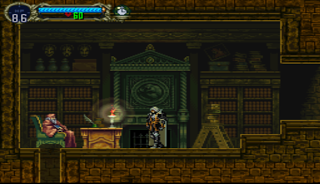
The teams of passionate individuals who spend their spare time working on various console emulators are the unsung heroes of video-game historicity. If they're working behind the curve, they aren't pirates — at least not as we think of them in the file-torrent sense. Nobody pays these people (for the most part), and they aren't looking to undercut any company's profits. Every step they take is an uphill struggle against the closed gardens the majority of console manufacturers have put in place. They deal with the legacy of 16- and 32-bit anti-piracy measures, and it is simply ridiculous that a commercialized industry for emulating old consoles doesn't exist.
The Wii's Virtual Console — as well as the inclusion of original PlayStation games on the PlayStation Network — is a noble effort, but in the grand scheme of things it's little more than a drop in the ocean. Bureaucracy has hampered efforts to bring old games to Virtual Console at every turn, bringing serious doubt to the financial viability of each title.
The final nail in the coffin is that the size of the audience interested in playing ten-year-old (or even five-year-old) games appears to be tiny when compared to size of the overall market — and that's just for the blockbusters of yesteryear. Trying to find someone interested in paying for the Dreamcast's AeroWings is a business endeavor only a fool would embark upon.
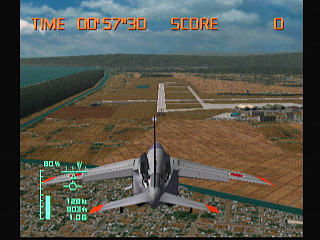
The capitalists among you might argue that this should be the end of the discussion: If there's not enough demand, why bother? In most cases you'd have a point, but simply because the majority of people aren't interested in something, doesn't mean it isn't worthwhile. Many game makers are students of the medium, and access to an extensive archive could inspire future developers to create something that's couched in the design of an old game of so-so quality. That game could turn out to be amazing.
I'm not arguing that I want access to every retro game, so I can play and enjoy them. Rather, I think it's important for our history that we merely are able to. Most games made today aren't titles that people will still want to play in 50 years, but that doesn't mean that they won't have contributed a great deal to the industry as a whole.
Take Kill Switch as an example: When Namco released it, it was a pretty standard third-person shooter with a nifty little thing called a "cover mechanic." It was fun, but it was nothing special. (Not special enough to warrant a rerelease at any rate.) Nowadays, with the inclusion of a cover mechanic in dozens of games, can anyone really claim that Kill Switch wasn't a milestone?
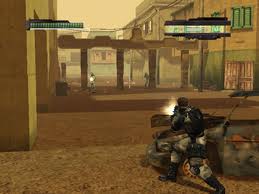
As I see it, the solution is government intervention. If Sony's and Nintendo's indifference toward filling out their retro catalogues is anything to go by, the financial incentive for them just isn't there. Because such an effort may need to be run at a loss, it becomes necessary for a government organization — akin to a library or a museum — to step in.
On its most basic level, this could mean collecting together physical copies of games as publishers release them (as well as the pertinent hardware). The organization would store the collection for historians to peruse at their leisure.
In a perfect world, anyone could access this library at any time from the comfort of their own home. Emulator teams need official support, and companies should make disc images available by legitimate means. We would need some sort of public-domain law here: a stipulation that after a game has been out of print for 10 years, the source code belongs to the people.
I'll admit that it's a utopian idea. We haven't even been able to digitize all the public libraries of the world yet, and books only take up a few megabytes of disk space. Current copyright laws would also prove troublesome since companies wouldn't be too happy with all this information becoming free.
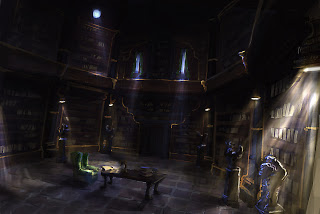
In reality, it's probably a completely impossible proposition to expect companies to release their back catalogues to the public domain, even with an unlikely government push behind the movement. As much as I hate to say it, thousands of titles will likely never be available again — at least not through legitimate means.
This doesn't mean we shouldn't try and change things now. Early legislation could force games companies to publicly release after their products have gone out of print. This would ensure that copyright documents written today plan for this eventuality. It wouldn't do much for the hundreds of Dreamcast games that are impossible to find today, but it'd certainly be a start.
Currently, it seems like a small issue, but with hardware architecture getting increasingly complicated, it's only going to get more difficult for emulator teams as time goes on. We need to start seriously thinking about video-game libraries now because with every year, we lose more and more titles to the ether of time. In all likelihood, the issue isn't going to become apparent until it's far too late.
